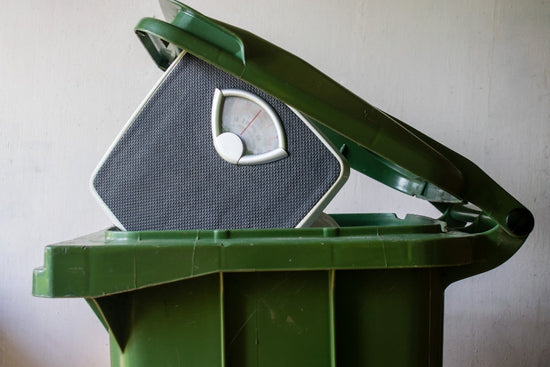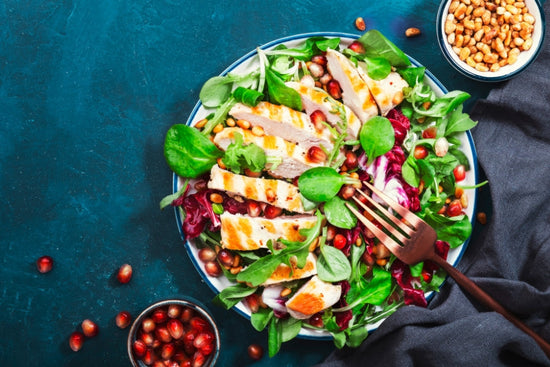
Should Easter Eggs Come with A Calorie Warning?
Easter is, quite literally, on our doorsteps MuscleFoodies, and you know what that means…
Easter Eggs!
Oh how we love this time of year – the time of feasting on chocolate and enjoying a slap up lamb roast with the family. And, of course, if the weather is alright, taking a wee stroll to roll some hard boiled eggs down a hill (still not sure why we do this, but it’s a thing…).
It’s a day to let loose and pick up the health kick on Easter Monday – right? A bit like Christmas when (most of) the fitness world lets go a bit.
BUT, this year, health professionals have come out and stated that they believe all Easter Eggs should now come with a calorie warning on them in a bid to try and combat obesity.
Credit: Good Morning Britain, www.youtube.com/@gmb
Apparently, we are just simply not aware of how many calories are present in our favourite bank holiday treats.
It’s estimated that right here in the UK we tuck into over 80 million chocolate eggs at Easter – that’s quite a lot of chocolate – with the largest eggs containing up to 1800 calories!
Yes – that’s almost a full day’s calories in one egg. And let’s be honest, who really is eating only one egg…
This debate has sparked controversy among health and fitness enthusiasts, as well as experts in the nutrition field.
Some argue adding the calorie count to your favourite chocolate eggs is a necessity in the fight against obesity, others say it’s just one day of the year, and why should we be made to feel bad for indulging as a once in a year treat.
It’s even caused a stir right here at MuscleFood HQ, so we thought let’s bring to our fabulous customers to see what you think…
So, let's dive into the two sides of this debate to explore the arguments for and against calorie warnings on Easter eggs.
Jump Ahead...
The Case For Calorie Warnings on Easter Eggs
Obesity rates in the UK have been steadily rising over the years, with statistics showing that almost two-thirds of adults in the UK are overweight or obese.
Excessive calorie intake is a major contributing factor to this epidemic, and chocolate Easter eggs, often high in sugar and saturated fats, can add to this issue. Leading dieticians to raise concerns about the hidden calories in these indulgent treats, highlighting the importance of being aware of what we consume.
Sarah Thompson, a prominent dietician, states, "Calorie transparency is crucial in helping individuals make informed choices about their food consumption. Many people may not realise the impact that one Easter egg can have on their daily calorie intake."
She argues that calories labelling Easter Eggs will give the consumer a greater understanding of exactly what they’re eating, allow them to make better portion control decisions and nudge consumers towards making healthier choices in the long run.
Sports Nutritionist Dr. Mark Reynolds echoes this sentiment by pointing out that “understanding the calorie content of Easter eggs can assist in managing weight and promoting healthier eating habits.”
In theory, by having clear labelling, you can make more conscious decisions about your food choices and will be less likely to over-indulge and overeat.
"Calorie transparency is crucial in helping individuals make informed choices about their food consumption. "

The Case Against Calorie Warnings on Easter Eggs
On the flip side, some argue that adding calorie warnings to Easter eggs may take away from the joy and celebration associated with these seasonal treats. Emma Green, a nutritionist, suggests that Easter is a time for enjoyment and relaxation, and focusing too much on calorie counting may detract from the festive spirit.
In fact, she believes it could ruin the whole fun of Easter entirely, “Easter is a time of enjoyment and great food,” she says, “it is not a time for guilt trips and foodie mind games.”
Moreover, critics of calorie warnings on Easter eggs argue that it may lead to negative relationships with food, particularly in children. Excessive emphasis on calorie counting at a young age could potentially contribute to the development of eating disorders and unhealthy behaviours around food.
"Easter is a time of enjoyment and great food, it is not a time for guilt trips and foodie mind games."

What We Think
The debate over whether Easter eggs should carry calorie warnings is multifaceted.
While it is important to acknowledge the obesity epidemic and empower individuals with information about their food choices, it is equally crucial to consider the impact of calorie labelling on our mental wellbeing and enjoyment of special occasions like Easter.
Of course, when it comes to health and fitness, here at MuscleFood we see nothing wrong in enjoying yourself this Easter with an egg (or two) whether there are calorie labels or not.
As we preach day in day out, balance is key but just remember that if you do go a bit mental with it, it’s going to take your healthy diet longer to recover and you could set yourself back a little on your health and fitness journey.
However, as we navigate this complex issue, it's essential for each of us to reflect on our own relationship with food, balance, and moderation.
Whether or not Easter eggs should have calorie warnings ultimately comes down to personal choice and individual perspectives.
As we indulge in seasonal treats, let's remember to savour the moment while also being mindful of our overall health and wellbeing.
So, what do you think? Should Easter Eggs come with a calorie warning, or should we just leave them alone and enjoy them once a year as we’ve always done?
Join the debate over on our socials now …
Resources
- https://www.ncbi.nlm.nih.gov/pmc/articles/PMC6340779/
- https://www.food.gov.uk/sites/default/files/media/document/Consumer%20Responses%20to%20Food%20Labelling_1_0.pdf
- https://www.ncbi.nlm.nih.gov/pmc/articles/PMC4209007/
- https://www.ncbi.nlm.nih.gov/pmc/articles/PMC8384707/
- https://www.ncbi.nlm.nih.gov/pmc/articles/PMC9344388/
- https://pubmed.ncbi.nlm.nih.gov/32520486/
New In Store



